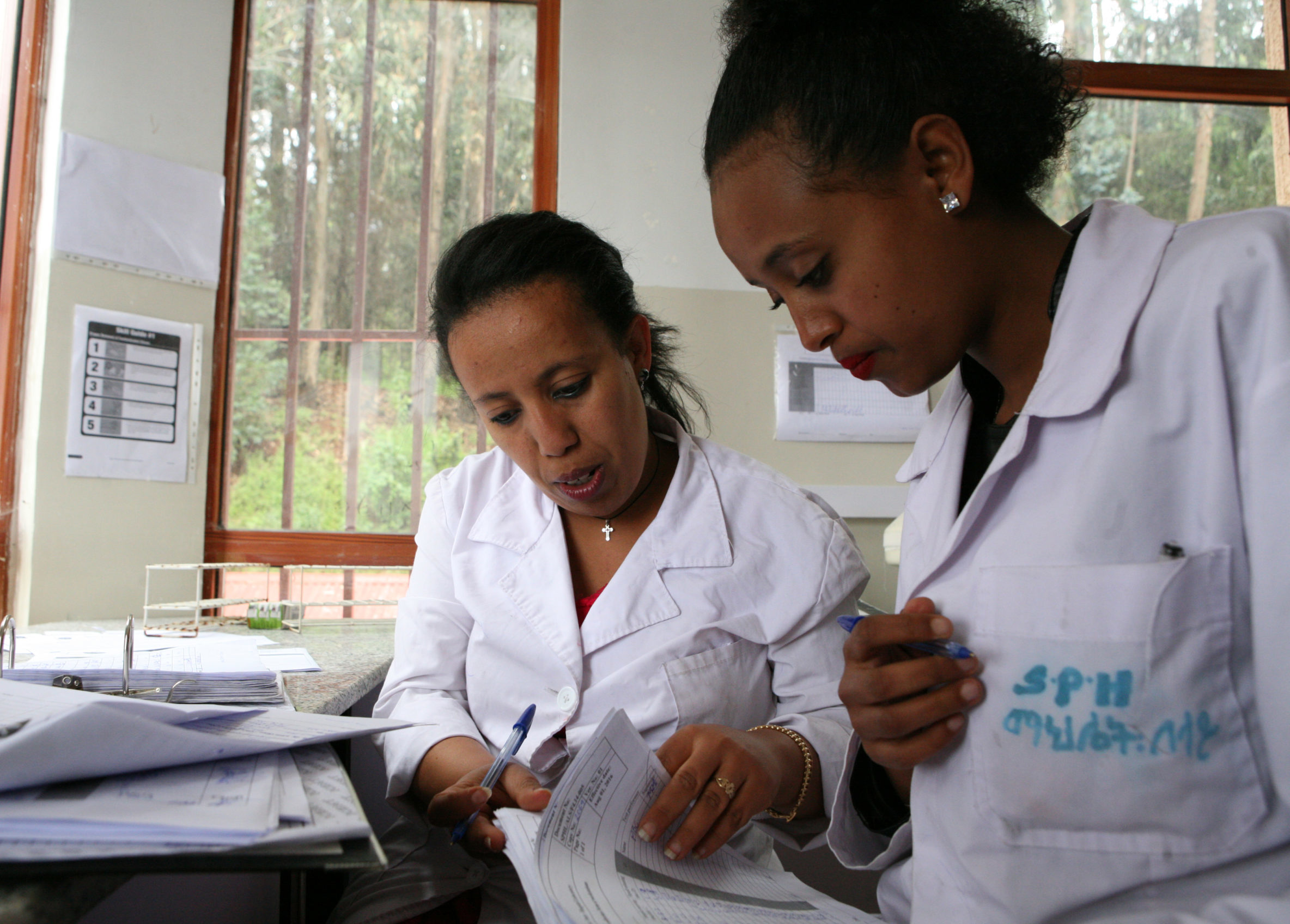On World TB Day, I.D. Rusen, Senior Vice President of Research highlights the urgent need for tuberculosis research to improve prevention and care.

Tuberculosis is both preventable and treatable—yet it remains a leading infectious disease killer worldwide. In 2019, 1.4 million people died from TB and an estimated 10 million people fell ill. Despite diagnosis tools, a vaccine and multiple treatment regimens, a lack of global funding and political will has left millions, mainly those in poverty, at risk of TB. In 2020, COVID-19 interrupted many essential health services, the impact of which we’ll likely see for years to come.
A major challenge facing the TB global epidemic is multi-drug resistant TB (MDR-TB). MDR-TB occurs when individuals are infected with TB that is resistant to two of the most effective medicines used in standard treatment. Vital Strategies has been implementing the STREAM clinical trial to evaluate shorter and more tolerable MDR-TB treatments. The trial is also strengthening research capacity at all trial sites, so our partners are better equipped to tackle future research priorities.
To learn more about MDR-TB, Vital Strategies’ STREAM trial and how COVID-19 is affecting TB research on World Tuberculosis (TB) Day we sat down with I.D. Rusen, Senior Vice President of Research.
How big of a problem is MDR-TB?
Each year MDR-TB affects approximately 500,000 people worldwide. Yet the most recent World Health Organization (WHO) data highlight that less than 40% of those cases are enrolled in treatment and the success rate of those treated is only 57%. We must do better. One important step to improving access to effective MDR-TB treatments is clinical research to identify optimal treatment regimens. Vital Strategies is contributing to this effort through the STREAM Trial.
Pill burden: The number of pills a patient must take each day for treatment
Can you tell me more about Vital Strategies STREAM trial?
Vital Strategies’ Research Division is the Sponsor of the world’s largest recruited MDR-TB trial – STREAM – which is being implemented at 13 sites in 8 countries across Africa, Asia, and Central Europe. STREAM has included more than 1000 participants in two stages of the trial.
Stage 1 of STREAM generated valuable results that played a significant role in the WHO’s endorsement of the use of a shorter standardized 9–11-month regimen for MDR-TB. This was exciting news for patients and health systems, because the shorter regimen reduced treatment time and the overall pill burden for patients, a reduction of about 60 percent. The final results of stage 1 were published in the New England Journal of Medicine in early 2019.
STREAM Stage 2 is evaluating an all oral, bedaquiline, a medication used to treat MDR-TB, containing regimen that is potentially as effective and more tolerable than the injectable-containing regimens currently in use in many countries. STREAM Stage 2 is also evaluating the comparative cost – both to patients and health systems – of the two regimens and assessing whether the regimens will result in cost-savings.
We support specialized training for STREAM study teams to help them conduct future clinical trials. Strengthening capacity of trial sites around the world is an overarching goal of the STREAM trial to help ensure our impact is sustainable well beyond STREAM. Our efforts include comprehensive community engagement activities and a unique program to support pharmacists’ and their work in the trial. (Link to twitter posts about capacity building)
Bedaquiline: a medication used to treat MDR-TB
How has COVID-19 impacted your work?
As the COVID-19 pandemic wreaked havoc globally, STREAM worked tirelessly to protect participants and ensure the integrity of the trial. From supply chain disruption to navigating restrictions on participant mobility, the trial team had to continually assess and respond to changing circumstances. Despite the challenges the trial remains on track to complete the primary analysis and share results with the global TB community in 2022.
The theme of World TB Day is “The Clock Is Ticking”, what commitments were made and what can we do to make progress against this leading killer?
This year’s World Tuberculosis (TB) Day theme – the clock is ticking – highlights the approaching deadline for world leaders to honor commitments made at the United Nations High-Level Meeting on TB in 2018. During this meeting, world leaders made a commitment to treat 40 million people for TB between 2018 and 2022, including 1.5 million people with drug resistant TB. We must accelerate our efforts to meet these targets. It is not just world leaders that are racing against the clock. The clock is ticking for all TB stakeholders to do our part to alleviate the burden and suffering caused by tuberculosis around the world. Building capacity for research and generating evidence to guide global policy is one important component that Vital Strategies is taking on. As we recognize World TB Day, we remain fully committed to accelerating research capacity, ensuring access to optimal TB care and ultimately ending TB.
To learn more about Vital Strategies Research Division visit: https://www.vitalstrategies.org/programs/research/ and follow us on Twitter: @VitalStrat
